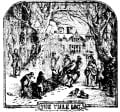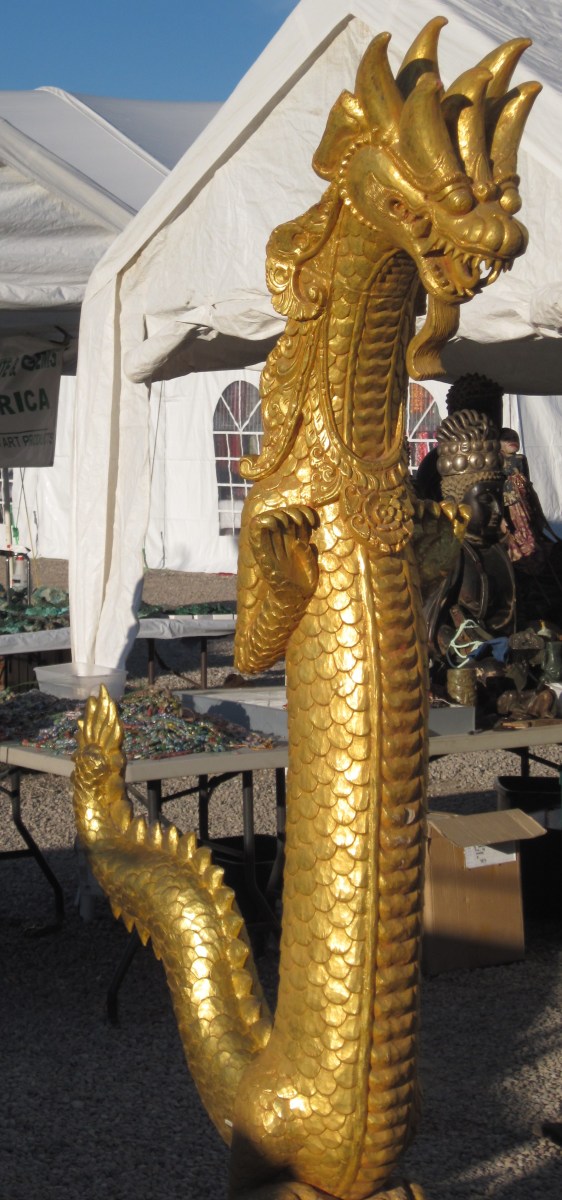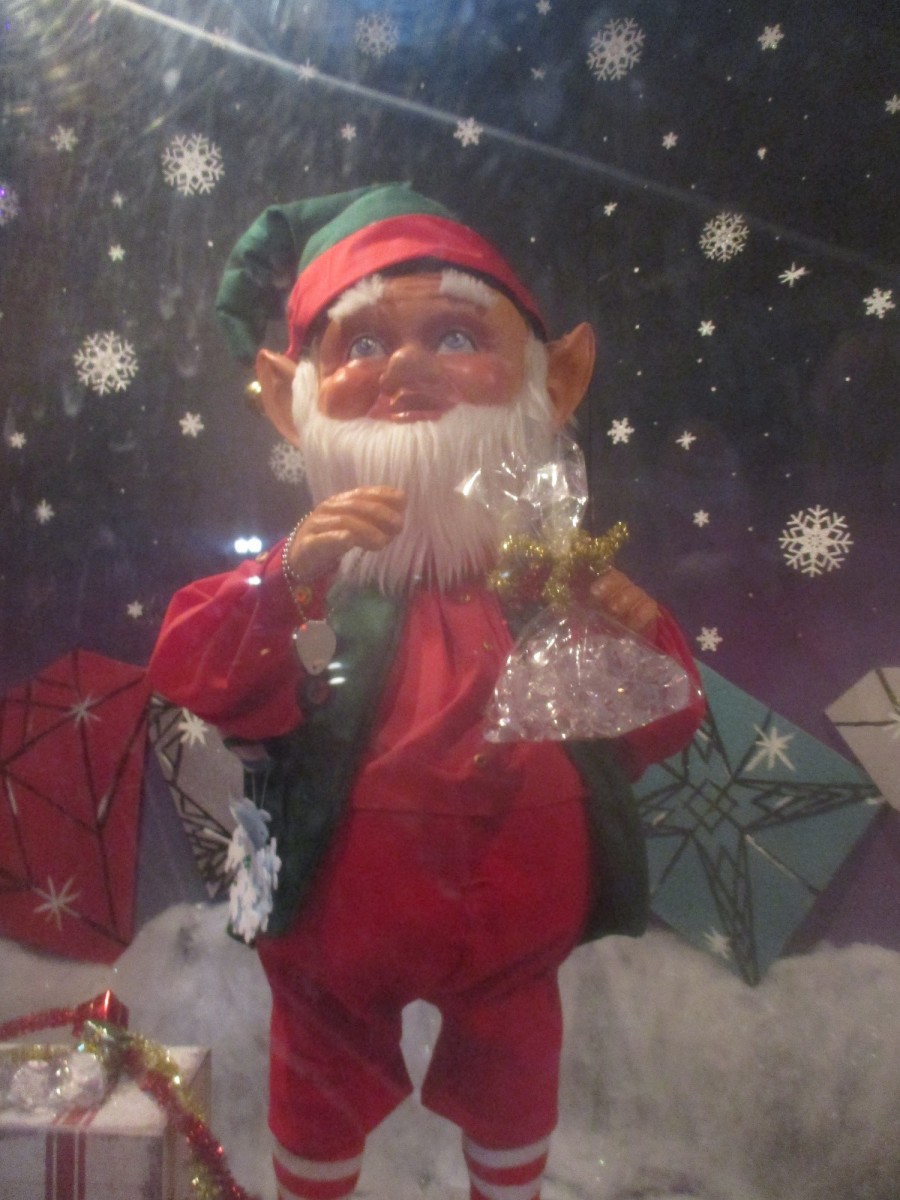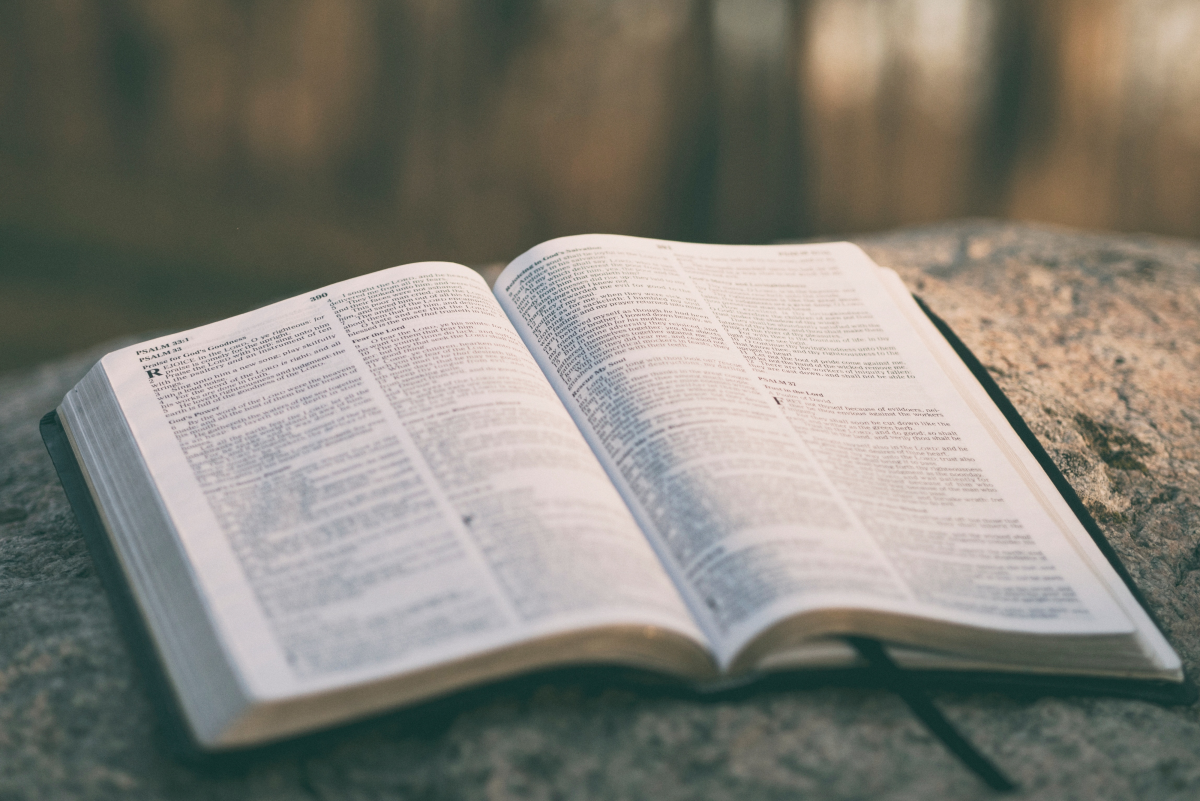Winter Holidays, Celebrate December!

Hello, December!
The Holiday Season in the month of December is not just about Christmas, or Chanukah (Hanukkah/Hannukah) Or Kwanzaa. Winter is celebrated all over the world with holidays that are linked to the solstice and others from various religions and traditions.
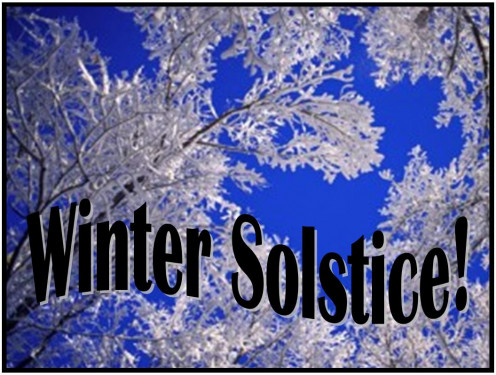
About the Winter Solstice
December 21st and 22nd: Winter Solstice in the Northern Hemisphere is the longest night of the year, when the earth’s axis is farthest away from the sun. The length of the day is shorter and, subsequently, the summer solstice is just the opposite: June 21st and 22nd is when daylight hours are longer because the earth’s axis is closest to the sun.
In ancient times, people who lived in the northern part of the earth’s hemisphere were afraid of the darkness. Growing Season would end; the days would become shorter as the land got colder. There was no understanding of the earth’s rotation around the sun and there was no fresh food; (only what had been stored away) and very little game available for hunting. The sun would disappear early in the day, giving way to darkness and fears that it could be gone altogether.
As the days passed, the sun would brighten the sky a little earlier each day, and although it would be several months before spring’s warmer weather came, celebrations of the sun’s appearance began a few days after the darkest day of the year.
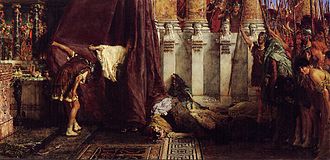
History: Ancient Celebrations of the Solstice
Greece: The winter solstice celebration called Lenaea, the Festival of the Wild Women was where a man representing the harvest god Dionysus was torn to pieces and eaten by a gang of women; later he would be reborn as a baby. Years later, the human sacrifice was replaced by the killing of a goat and the women’s role was that of observers of the birth.
Rome: Saturnalia was a festival on December 17th in honor of the roman god of agriculture, Saturnus. The Saturnalia festival lasted from one to seven days (depending on the ruler at the time) and featured public banquets, gambling and the relaxing of social restrictions. Wax candles were traditionally given as gifts to family and friends.
Iran: Shab-e yalda, the rebirth of the sun, was an ancient Iranian ceremony that reflected the basics of goodness and light against evil and darkness. The last day of the Persian month of 'Azar' is the longest night of the year; the days brighten from then on. Traditions for Shab-e yalda include the eating of fruit and nuts to symbolize the hope for future prosperity.
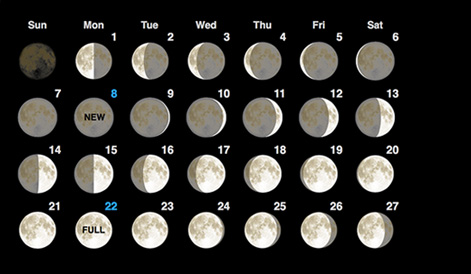
December Holidays: Set and Varying Dates
Some holidays fall on different dates each year because they are in line with the lunar calendar, when every month begins and ends with the sighting of a new moon.
Chanukah/Hanukkah/Chanukkah/Hannukah celebrates two miracles: the Jews’ revolt and victory against Syrian tyranny (2nd century BCE) which prevented their religious freedom; and the burning of a jar of consecrated oil which was expected to last only one day but instead lasted eight days, during the cleansing and rededication of the temple in Jerusalem. The holiday begins on the 25th day of the Hebrew month of Kislev, which falls on varying dates in December.
Eid al-Adha, “the Festival of Sacrifice,” is a religious Muslim holiday which reflects on Abraham’s willingness to sacrifice his son upon God’s word, before God intervened. The holiday begins on the tenth of Dhu al-Hijjah, which is the 12th month of the Islamic calendar, and falls on various dates in November, December and January. Muslims typically begin Eid al-Adha celebrations about 70 days after the end of Ramadan, following the annual trek to Mecca in Saudi Arabia.
December 6th: St. Nicholas Day is celebrated for Nicholas (Nikolaos of Greece), who died on December 6th AD 343. St Nicholas gained a reputation for his generosity and gift-giving to the poor, sick and needy which paved the way for today’s Santa Claus. St. Nicholas Day is celebrated in many European countries with candies and small gifts.
December 8th: Immaculate Conception of Mary is celebrated in many Latin countries as, according to Catholic doctrine, the day of the conception of the Virgin Mary. The doctrine says that God had preserved Mary from original sin, giving her his grace, the divine life of Jesus Christ.
December 12th: Our Lady of Guadalupe (Mexico, the Virgin of Guadalupe) is a Catholic holiday that celebrates the miracle of the image of the Virgin Mary appearing on the cloak of a simple peasant, near Mexico City on December 12th, 1531.
December 25th: Christmas is celebrated to honor the birth of Jesus Christ. Christians (and non-Christians alike) celebrate in a variety of ways including gift-giving, going to church, eating special foods and spending the day with loved ones.
December 26th: Boxing Day, also known as St. Stephen’s Day, or the Second Day of Christmas, is a public holiday that is celebrated in Australia, Canada, the United Kingdom and a number of other countries on the day after Christmas. Its origin stems from the British Commonwealth and traditions include giving gifts and money to the needy and to those who are in service positions. For instance, in some households, employees who worked on Christmas Day would take the following day off to visit their families; their employers would then present them with a special bonus.
In the 19th century, church boxes that held money collected for the poor were opened and their contents distributed.
December 26th: Kwanzaa, celebrated from December 26th through January 1st every year, commemorates African heritage and culture. It was created in 1966 by author and political activist Dr. Maulana Karenga (born Ronald McKinley Everett in 1941) to “give Blacks an opportunity to celebrate themselves and history" as well as family, community and culture.
Observances of Kwanzaa may include decorations, music, gifts of books and other items that promote knowledge and a candle-lighting ceremony. The name of Kwanzaa comes from a Swahili phrase that means fruits of the harvest.
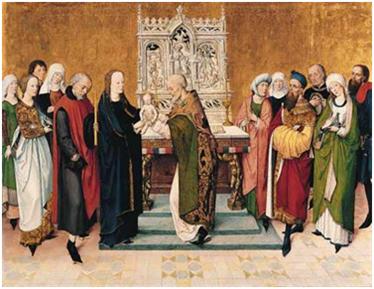
Winter Christian Holidays
Advent: Beginning on the fourth Sunday before December 25th, Advent is the preparation for the celebration of the birth of Jesus Christ. Advent calendars are traditionally made for children, to help them keep track of the days before Christmas.
St. Nicholas Day: Celebrated on December 6th to honor and foster charitable giving.
Christmas Eve: Celebrated on December 24th commemorating the birth of Jesus of Nazareth.
Christmas Day: December 25th has been celebrated as the birthday of Jesus Christ since the fourth century although the actual birth date has not been verified; earlier Christians had not, arguably, made note of the birth, only the baptism and resurrection. The terms Yule and Yuletide originally meant to refer to an early Germanic pagan religious festival celebrated on a date from the lunar calendar (in late December), but date was merged to December 25th to coincide with Christmas Day.
Christmastide (the Twelve Days of Christmas :) Begins on Christmas Day through January 5th.
St. Stephen’s Day: Also known as the Feast of Stephen and Boxing Day is celebrated on December 26th.
Feast of the Circumcision: A Christian celebration of the Christ child’s circumcision, held eight days after his birth.
Twelfth Night: Celebrated on January 5th as the final day of the Christmas season. Twelfth Night is the epiphany celebration of the Magi’s adoration of the baby Jesus.
Candlemas: Celebration of the early life of Jesus Christ held on February 2nd. In the Eastern Orthodox Church, Candlemas, also called the Feast of the Presentation of Jesus at the Temple, is one of the 12 great feasts. Many scholars believe that Candlemas is the most ancient of all the festivals in honor of the Virgin Mary.
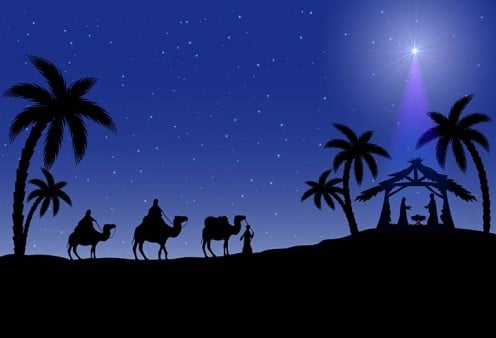
Other Winter Holidays and Commemorations (January-March)
New Year’s Day: January 1st: The first day of the year on the modern Gregorian calendar.
Dia de los Santos Reyes (Three Kings Day): January 6th: This is a religious holiday in many Latin countries (such as Mexico;) a celebration of the Epiphany, where the three wise men bring a gift to the Christ child.
Martin Luther King Jr. Day: Third Monday in January: A federal holiday in the United States to celebrate the life of the slain civil rights leader.
Groundhog Day: February 2nd: Commemorated in the United States and Canada. Folklore has it that when a groundhog comes up from his burrow on a cloudy day, winter would be over soon. If it is a sunny day, that means six more weeks of winter.
Lincoln’s Birthday: February 12th: A federal Holiday to commemorate Abraham Lincoln’s birthday, 16th president of the United States.
Valentine’s Day: February 14th: Originally declared for several Christian martyrs named Valentine, one of whom was a priest who died in AD 269, romance was not connected to early celebrations. In 1969, the feast day of St. Valentine was removed from the General Roman Calendar as a religious observation. St. Valentine became linked to romance in about the 14th century; Valentine’s Day has long evolved into a romantic declaration of affection.
Washington’s Birthday: February 22th: A federal Holiday to commemorate George Washington’s birthday, first president of the United States.
Presidents Day: Third Monday in February: A federal holiday in the United States to celebrate the lives of former presidents George Washington and Abraham Lincoln, in order to combine the two separate holidays.
Mardi Gras: Varying dates in February or March: A celebration before Lent. Mardi Gras refers to events of the Carnival Season, beginning on or just after Epiphany and up until Ash Wednesday.
Ash Wednesday: Varying dates in February or March: Ash Wednesday is the first day of Lent, and occurs 46 days (40, not counting Sundays) before Easter. The date changes each year, as does Easter, and could be as early as the beginning of February and as late as the middle of March. As part of a religious ritual, participants place ashes on their foreheads as a sign of repentance.
Purim: Varying dates in February or March: Occurring on dates based on the lunar calendar, Purim is the celebration of the deliverance of the Jewish people living in ancient Persia, where the king’s advisor (Haman) wanted to kill those who would not bow down to him. In the biblical Book of Esther, Esther becomes queen, influences her husband the king to kill Haman and save the Jewish people. Purim celebrations include special foods, costumes and carnival games.
St. Patrick’s Day: March 17th: Falling just before the vernal equinox, St. Patrick's Day is still a winter holiday (although it feels like spring). St. Patrick’s Day, named for Saint Patrick of Ireland (circa AD-387-461), began as a Catholic holiday but is now widely celebrated to honor Ireland’s culture, heritage and ancestry.

Celebrate December!
So, no what matter holidays you celebrate in December, January, February and March -- celebrate winter!
Further Reading
© 2014 Teri Silver

